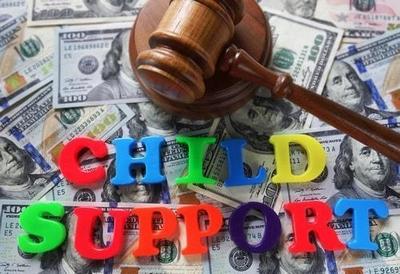Free Initial Consultations
 630-580-6373
630-580-6373With offices in Naperville, Joliet, Wheaton, Plainfield & Chicago
 Every marriage has its ups and downs, and every married couple has their issues, hang-ups, and disagreements. Although those spats and low points can get pretty intense, and may even teeter on the edge of volatile, not every rough patch ends in divorce (nor should it). However, there are situations in which divorce may be the best option. How does one tell the difference? According to therapists, and in our own experience, some key signs may indicate a marriage is headed for divorce. Learn more with help from the following information.
Every marriage has its ups and downs, and every married couple has their issues, hang-ups, and disagreements. Although those spats and low points can get pretty intense, and may even teeter on the edge of volatile, not every rough patch ends in divorce (nor should it). However, there are situations in which divorce may be the best option. How does one tell the difference? According to therapists, and in our own experience, some key signs may indicate a marriage is headed for divorce. Learn more with help from the following information.
Constant Fighting and Changes in Communication
While many couples go through periods of excessive arguing, those that seem to drag on for extended periods of time can be a good indicator that a marriage may be headed for divorce. If the arguments are also paired with a change in communication (i.e. yelling between partners that do not normally yell), things could be headed for an explosive end in the very near future. Therapists suggest seeking marriage counseling, but those that have marriages with any form of abuse (including mental and emotional abuse) might want to consider ending the relationship.
 Spousal support, though less frequently awarded in divorce than it used to be, is still an option for disadvantaged spouses. However, many things have changed over the last few years. For example, more women are the primary breadwinners in their families, so more men are pursuing spousal support. Another major difference is that the formula for calculating alimony changed back in 2015. Discover how to tell if you may be eligible for spousal support, and how it is calculated in an Illinois divorce today.
Spousal support, though less frequently awarded in divorce than it used to be, is still an option for disadvantaged spouses. However, many things have changed over the last few years. For example, more women are the primary breadwinners in their families, so more men are pursuing spousal support. Another major difference is that the formula for calculating alimony changed back in 2015. Discover how to tell if you may be eligible for spousal support, and how it is calculated in an Illinois divorce today.
Are You Eligible for Spousal Support?
Despite the common misconception, alimony is not always awarded, just because it is requested. Instead, spouses who wish to receive alimony must fit a few criteria before they are considered eligible by the courts. For example, the courts may award alimony when:
 Filing for bankruptcy can give you a fresh start, a chance to turn your finances around for the better. Unfortunately, there are some debts that cannot be discharged. For example, some people cannot include their student loans in their bankruptcy– but including your student loans in a bankruptcy filing is not impossible. Learn more about how to improve your chances of having your student debts discharged, and how an experienced attorney may be able to help.
Filing for bankruptcy can give you a fresh start, a chance to turn your finances around for the better. Unfortunately, there are some debts that cannot be discharged. For example, some people cannot include their student loans in their bankruptcy– but including your student loans in a bankruptcy filing is not impossible. Learn more about how to improve your chances of having your student debts discharged, and how an experienced attorney may be able to help.
Getting Your Student Loan Debt Discharged
Although the bankruptcy code does bar the inclusion of federal aid student loans, it does not explicitly exclude all student loans. In fact, some consumers have won against student money lenders in court by explaining that their student funds were acquired through a private lender. Another strategy to have at least some of your student debts discharged is to examine how the funds were spent. The bankruptcy code states that the funds cannot be included if they were part of the cost of tuition; use of the funds for other items (i.e. a computer that was not required for attendance) related to school may allow for at least a partial discharge.
 Life after divorce can be hectic, especially if you share children with your ex-spouse, but a new phone application is trying to make it a little easier. Designed to help divorced parents manage their children’s schedules from two completely different homes and devices, it is revolutionizing divorce. Learn more about the application and how you can incorporate it into your Illinois parenting plan with help from the following information.
Life after divorce can be hectic, especially if you share children with your ex-spouse, but a new phone application is trying to make it a little easier. Designed to help divorced parents manage their children’s schedules from two completely different homes and devices, it is revolutionizing divorce. Learn more about the application and how you can incorporate it into your Illinois parenting plan with help from the following information.
How the App Works
Developed by a divorced Florida dad of two, the application is named Fayr, and it can track everything from time sharing to schedule changes, all in real time. It also permits the exporting of court documents, location check-ins, and can keep track of child-related expenses. Families who are using it sing its praises, saying it helps keep everyone organized – even the kids. Currently available on iOS for a monthly subscription fee, and set to release for Android at the end of 2017, it can also easily be incorporated into an Illinois parenting plan.
 The decision to file for bankruptcy is not one easily made. It requires a debtor to take an honest look at their situation and admit that they need help. Filing for bankruptcy can also cause feelings of guilt, and it may negatively impact your credit score. How do you rebuild it, and how long does it take? The following provides some advice and guidance on this issue and explains where you can find assistance with your bankruptcy needs.
The decision to file for bankruptcy is not one easily made. It requires a debtor to take an honest look at their situation and admit that they need help. Filing for bankruptcy can also cause feelings of guilt, and it may negatively impact your credit score. How do you rebuild it, and how long does it take? The following provides some advice and guidance on this issue and explains where you can find assistance with your bankruptcy needs.
How Does Bankruptcy Affect Your Credit?
When you file for bankruptcy, your credit does take a hit. Furthermore, the bankruptcy stays on your credit for a total of 10 years. However, the damage is not as extensive as most people think. Yes, bankruptcy might make you a subprime borrower, but you also cannot file for bankruptcy again for another eight years if you file Chapter 7. Also, if you file Chapter 13, your debt-to-income ratio could be significantly decreased over the course of just a few years.
 Divorce can have a long-term impact on your finances. In fact, even financially savvy individuals can experience a massive depletion of their income and resources. Thankfully, there are ways to mitigate against some of the damage. Learn more about the most common money mistakes in divorce, and how to avoid them, with help from the following information.
Divorce can have a long-term impact on your finances. In fact, even financially savvy individuals can experience a massive depletion of their income and resources. Thankfully, there are ways to mitigate against some of the damage. Learn more about the most common money mistakes in divorce, and how to avoid them, with help from the following information.
Overlooking Some of Your Assets
Couples going through a divorce often think to include the house, vehicles, retirement accounts, and bank accounts in their marital estate, but there are other, less common assets that may be overlooked. Examples can include valuable artwork, jewelry, or furniture; fan collections (i.e. baseball card collections); savings bonds; and investment real estate. Avoid making this same mistake by going through all your financial information. Look for long-forgotten items that are meant to accrue interest. Then look around your home. If you are in doubt about whether an item is valuable, consider having it appraised.
 Every minute, 20 people in the United States are abused by an intimate partner. Someone they love and trust. Perhaps also someone to which they are married. Sadly, leaving such a marriage is rarely easy. There is the risk of retaliation, and the legal system still has gaps in its protection of victims. Thankfully, there are ways that married victims can protect themselves. One of them is the use of a safety plan. Learn more about how it can help you, and what other strategies you may have to protect yourself from an abusive spouse during divorce or legal separation.
Every minute, 20 people in the United States are abused by an intimate partner. Someone they love and trust. Perhaps also someone to which they are married. Sadly, leaving such a marriage is rarely easy. There is the risk of retaliation, and the legal system still has gaps in its protection of victims. Thankfully, there are ways that married victims can protect themselves. One of them is the use of a safety plan. Learn more about how it can help you, and what other strategies you may have to protect yourself from an abusive spouse during divorce or legal separation.
What is a Safety Plan?
A safety plan is a detailed account of how you will respond to various situations. It can also help to ensure you have all the documents and information you need to move forward with your life once you leave (i.e. birth certificate, social security card, school transfer papers for the children, bank account information, etc.). You can also incorporate family, friends, neighbors, and coworkers into a safety plan to improve the transition process. A few things you may wish to address could include:
 The division of assets in a divorce can be a contentious and complicated process. However, it carries out in a somewhat predictable manner. The value of each item is determined, the total value of the marital estate is determined, and then each party receives an equitable (fair) distribution of the estate. What happens, though, when the two sides do not see eye to eye on the term “fair?” Further, how are large value assets handled in an Illinois divorce? The following answers these questions, and provides some advice on how you can ensure your rights and best interests are protected throughout the entire process.
The division of assets in a divorce can be a contentious and complicated process. However, it carries out in a somewhat predictable manner. The value of each item is determined, the total value of the marital estate is determined, and then each party receives an equitable (fair) distribution of the estate. What happens, though, when the two sides do not see eye to eye on the term “fair?” Further, how are large value assets handled in an Illinois divorce? The following answers these questions, and provides some advice on how you can ensure your rights and best interests are protected throughout the entire process.
What Constitutes “Fair” in an Illinois Divorce?
The term “fair” is a subjective one, and it can quickly spark heated disagreements over who has contributed what to the marriage. However, the courts do have ways to determine what might be fair. For example, if a spouse does not work but has given up their education or career to advance their spouse’s education or career, they might be entitled to alimony or a larger portion of the marital estate than they might have otherwise received. Other factors that may be considered include the:
 As most adults know, happy endings are less common in real life than in storybooks, and even when one does come, it rarely looks quite like you envision. The Disney Channel is reflecting this in a new television series, Raven’s Home, a follow-up to the old hit show, That’s So Raven. Their goal? To show that divorce can be scary, especially for kids, but lots of families get through it, and some are stronger and better for it in the end.
As most adults know, happy endings are less common in real life than in storybooks, and even when one does come, it rarely looks quite like you envision. The Disney Channel is reflecting this in a new television series, Raven’s Home, a follow-up to the old hit show, That’s So Raven. Their goal? To show that divorce can be scary, especially for kids, but lots of families get through it, and some are stronger and better for it in the end.
Strong and Successful Co-Parenting
Raven and Devon were high school sweethearts, and they were attempting to make a long-distance relationship work when the original show ended. Now they have twin girls, have recently gone through a divorce, and everyone is trying to find their new version of “normal.”
Raven is living with her best friend, raising the kids, and Devon is a present and positive role model in the lives of his two children. Both parents are working hard to build a healthy and successful co-parenting team – which makes them a lot like other divorcees these days.
 Illinois has been using the percentage shares model to calculate child support since 1984, but that changed on July 1, 2017. Now the state uses an income shares model, which places it on par with most other states in the U.S. Another notable change to the law is the inclusion of a shared parenting provision, which may impact a parent’s child support obligation. Learn more about this provision, including how to determine if a modification to your current order may be warranted.
Illinois has been using the percentage shares model to calculate child support since 1984, but that changed on July 1, 2017. Now the state uses an income shares model, which places it on par with most other states in the U.S. Another notable change to the law is the inclusion of a shared parenting provision, which may impact a parent’s child support obligation. Learn more about this provision, including how to determine if a modification to your current order may be warranted.
An Overview of the New Income Shares Model
Unlike the old child support model, which calculated child support based on the income of the paying parent and the number of children shared between parents, the new income shares model calculates child support based on the cost of raising a child (based on data from the Bureau of Labor Statistics). It also examines the income of the parents and then determines what percentage of child-rearing costs each should be responsible for paying. Spousal support is also factored into the formula now, which may impact those receiving both spousal and child support.
